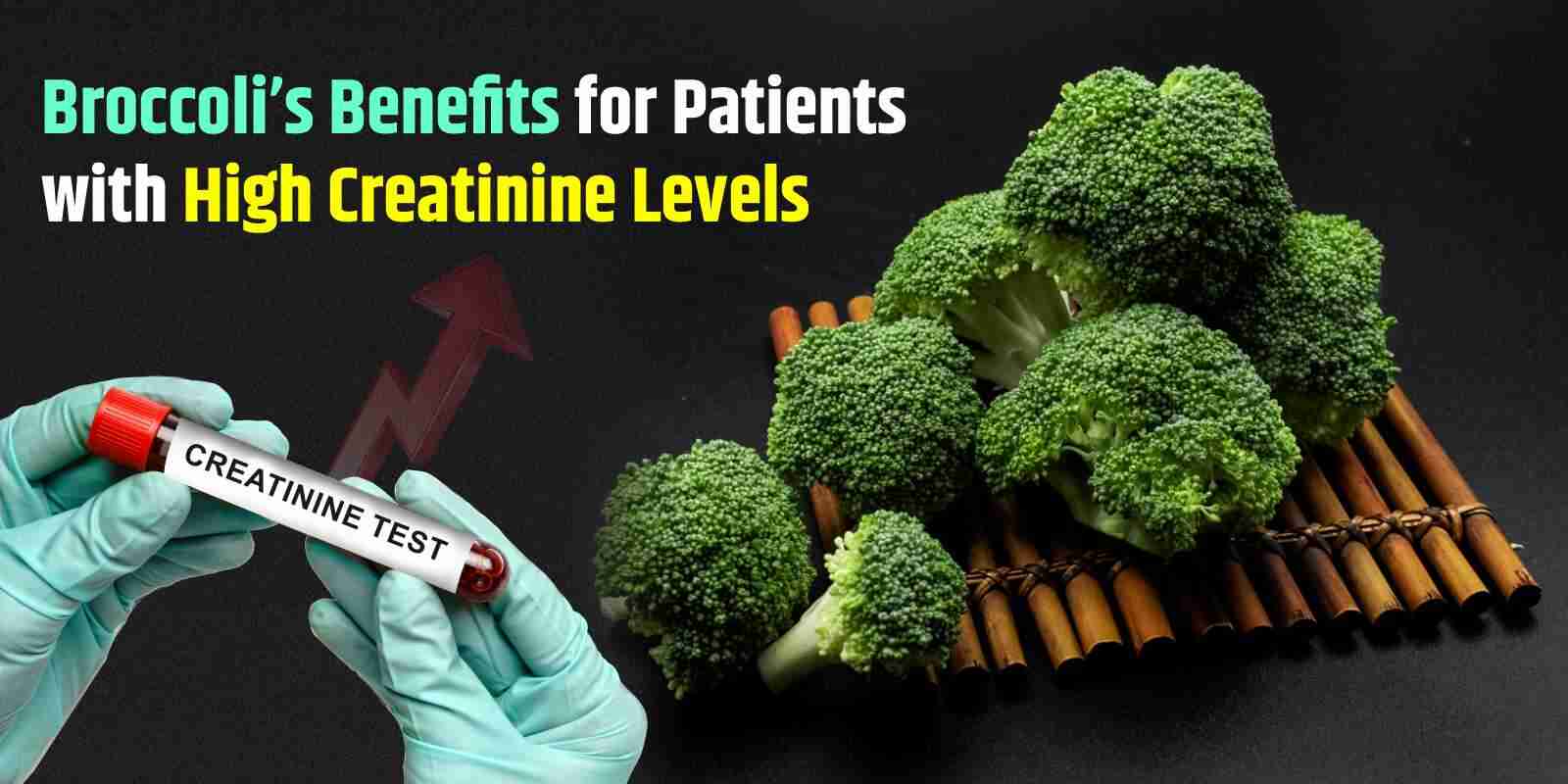
Broccoli is a nutritious meal that is popular all over the world, and it is a common ingredient in European cuisine. It came in fourth place on Time magazine’s list of the ten healthiest foods. So, what advantages does broccoli have for persons with kidney disease? While taking Creatinine treatment in Ayurveda broccoli is suggested in diet apart from other important foods.
When it comes to broccoli, there are a few things to keep in mind. One is broccoli, which has a favorable environment for the growth of vegetable bugs, and pesticides frequently contain residual agricultural chemicals. As a result, patients should soak it in saline water for a few minutes to resolve the issue.
Furthermore, there are a number of substances that can cause thyroid enlargement, which can be alleviated by increasing iodine intake, which can be obtained via iodate or seaweed. As a result, when consuming broccoli, patients should pay attention to the collocation.
Raw broccoli has only 25 calories, fewer than 5 grams of carbohydrate, no fat, and a few grams of plant protein in one cup. Despite this, broccoli is a nutrient-dense vegetable. One bowl of spinach offers 250 percent of vitamin K requirement that helps in blood clotting and bone health.
Broccoli has 2-3 grams of fiber per cup, which promotes digestive health and feeds beneficial bacteria in the stomach linked to anti-inflammation, immunity, and mood. Over two ounces of water are also contained in the same size serving.
Broccoli is a member of the cruciferous family (cauliflower, kale, Brussels sprouts, cabbage, etc.). It may help prevent cancer. Natural chemicals found in this group of plants have been connected to cancer prevention due to their capacity to neutralize carcinogens and prevent cancer cells from developing. Broccoli offers heart protection.
Heart disease is still the world’s top cause of death in both men and women. Broccoli and other cruciferous vegetables protect the heart by minimizing artery damage that leads to hardening, which is commonly a precursor to a heart attack or stroke.
Broccoli is unusual in that it includes a number of nutrients that are important for bone growth and the prevention of bone loss. Vitamin K, potassium, magnesium, phosphorus, and calcium, as well as copper, iron, zinc, vitamins A and C, and B vitamins, are among these.
Broccoli’s anti-inflammatory properties have been linked to a lower risk of chronic diseases, in addition to helping to prevent premature aging. Inflammation-fighting chemicals may also help treat existing inflammatory disorders such as type 2 diabetes, rheumatoid arthritis, inflammatory skin conditions, bowel disease, and obesity by protecting cells from DNA damage.
According to research, naturally occurring molecules in broccoli work as detoxifiers, meaning they help to deactivate potentially harmful substances or expedite their removal from the body.
Skin damage induced by UV radiation has been demonstrated to be mitigated by antioxidant chemicals found in broccoli. Lutein and zeaxanthin, which are found in vegetables, protect the retina and eye lens and have been demonstrated to lower the risk of macular degeneration and cataracts, two prevalent eye illnesses.
To retain the most nutrients, steam cooked broccoli before topping with a dairy-free extra virgin olive oil-based pesto, olive tapenade, or savory nut butter sauce.
Apart from other key nutrients, broccoli is recommended in the diet while receiving Creatinine treatment in Ayurveda. Ayurveda places a strong emphasis on nutrition because it is so crucial in the treatment of kidney disease and other diseases. Ayurvedic therapy relies heavily on natural herbs.
"Ayurveda is not just a system of medicine; it's a way of life. Connect with us to embrace a lifestyle that nurtures your body, mind, and soul."

Certificate no- AH-2023-0186
JAN 05,2023-JAN 04,2026